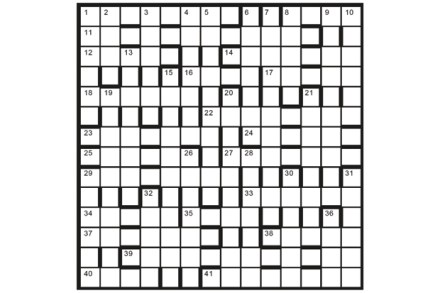2237: Experimental
One unclued light is a publication (two words). The others are relevant figures (all in Chambers) who appear in a form suggested by the publication’s title. Across 1 Maybe camping, emptied lavatory diligently (8) 8 Heartlessly shakes young animals (4) 12 Earl leaves part of UK, touring king’s avenues (5) 16 Bed of rock’s silicon lines (4) 17 Return dirty old dishes (5) 18 Letter by doctor, one giving lozenges (6) 24 Irritation on street a pain when running (6) 25 Hesitation, beset by dire last warnings (6) 27 I must enter large gallery with openings (7) 29 Implements silent reforms in country (8) 33 A fruit tree cut back





















